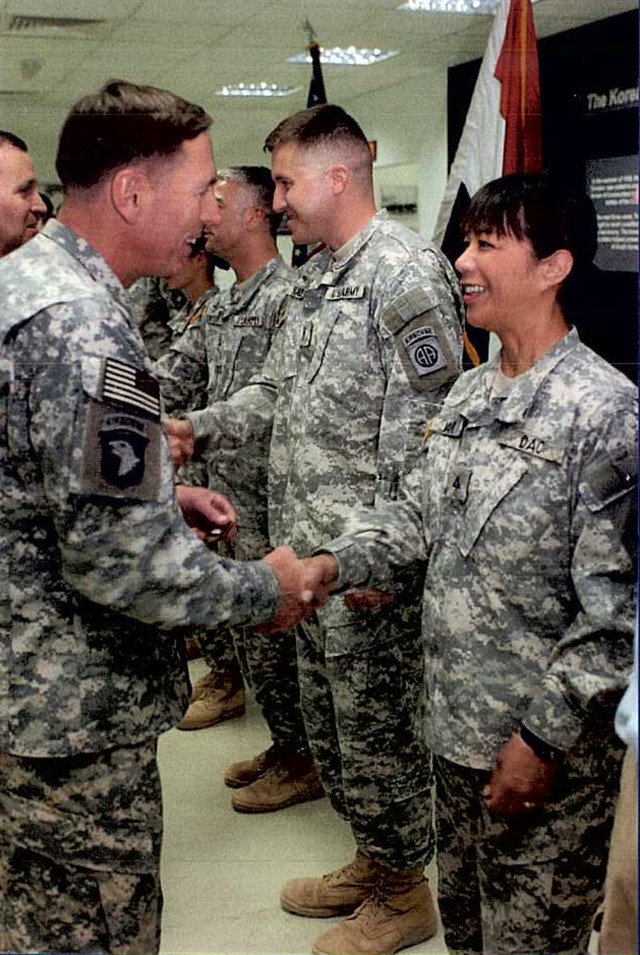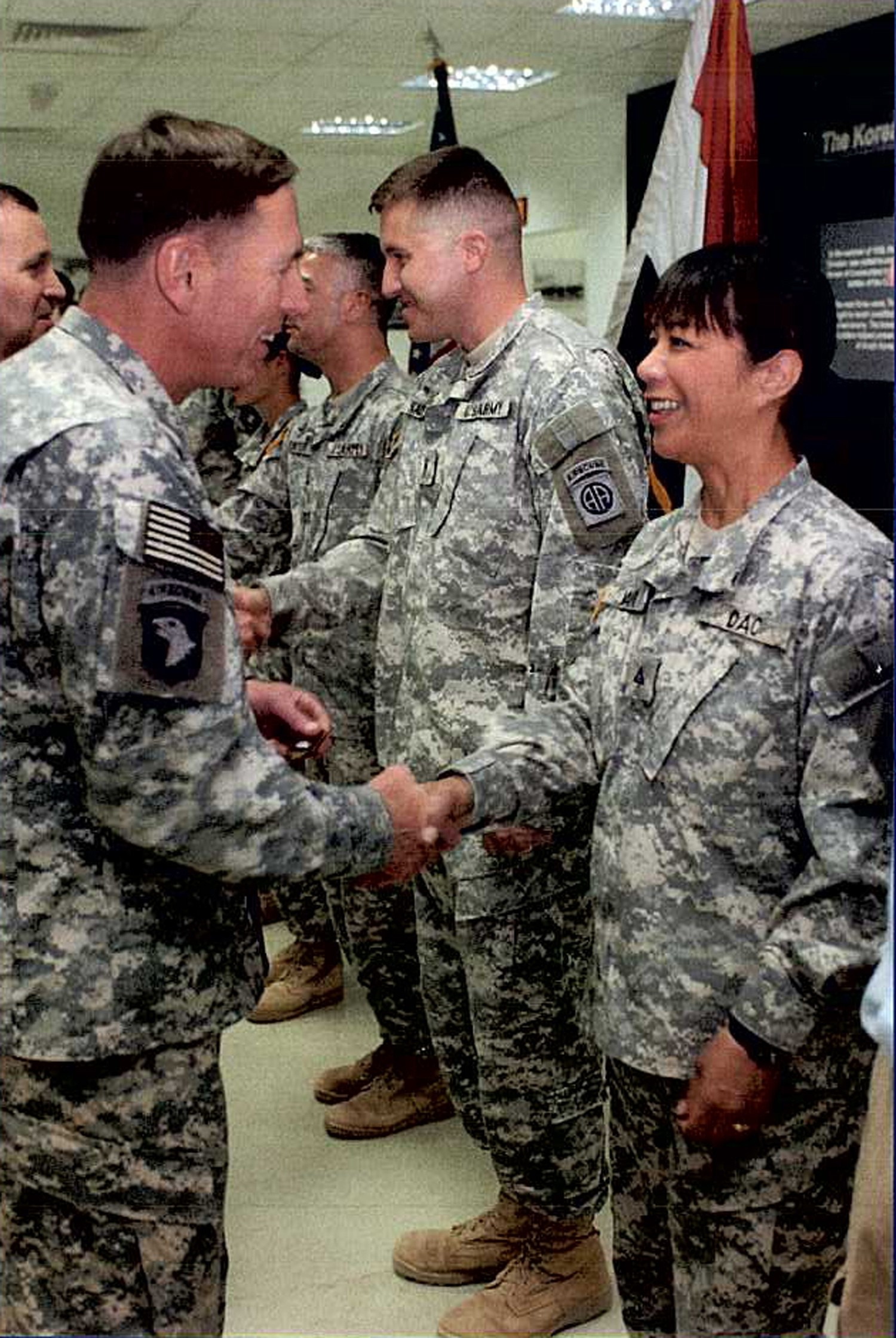<p>Department of Army civilians proudly serve alongside Soldiers overseas
SCHOFIELD BARRACKS, Hawaii - Lost in the mass of Army Combat Uniform-clothed Soldiers downrange, one can also find Department of Defense civilians deployed right alongside those Soldiers.
Carol David, budget analyst for the 25th Infantry Division (ID), is one of those civilians.
First offered a chance to deploy in April 2006, David accepted the invitation to support the 25th ID and spent 14 months in Iraq.
"At first it was nerve-racking, not knowing what to expect," said David. "But once I got there, working side-by-side with the Soldiers and seeing them perform the job they were trained to do, keeping us safe and well protected, it was the greatest experience."
According to the Army's Civilian Deployment/Mobilization Guide, it's Army policy that civilians be used to support military in carrying out its missions. The objective is to ensure that qualified Army civilian employees are available in adequate numbers and with adequate skills to meet worldwide mission requirements during periods of national emergency, mobilization, war, military crisis or other contingencies.
Thousands of DOD civilians nationwide provide on-the-spot support to service members deployed around the world. They wear uniforms just as the service members they support, but do not carry weapons.
According to an American Foreign Service Association 2008 survey of foreign service officers, the primary reason civilians choose to deploy is pay and benefits, followed by patriotism.
Unlike service members, for civilians, participation in a deployment is voluntary, unless stated in the employee's original job description when he or she is hired.
Whether they are asked by the command to deploy or if they volunteer themselves, the process can be lengthy. To qualify, civilians must pass a pre-deployment physical and receive numerous vaccinations. After completing medical testing, a doctor determines whether participants are physically fit to deploy.
Training is also required, including basic first aid, Soldier field survival skills, prisoner of war coping skills, and standards of conduct, customs and courtesies of the host country.
Depending on the specific position and location of their deployment, civilians may be required to pass sidearm training as well. Civilians must also complete the administrative process, filling out a large quantity of paperwork, including a Record of Emergency Data and preparing a living will.
In addition, civilians must apply for security clearance and necessary passport, visa or country clearance.
Once paperwork is completed and civilians are deemed fit to deploy, they receive travel orders, which are processed through the command.
"Civilians who deploy ... have a passion to give their utmost in support of the troops," said Aileen Chinen, management services specialist for the 25th ID command group. "(They) perform their tasks so the Soldiers can focus on what they're supposed to do."
Many civilians within the installation have deployed in support of Operation Iraqi Freedom and Operation Enduring Freedom.
David is currently preparing for her second deployment in November of this year. She will spend one year in Iraq.
"I know I will be working with a great crew of Soldiers and civilians again," she said.
"When asked, I felt this would be a wonderful opportunity for me to support the Soldiers in the field," said David. "I also knew that the training opportunity and experience on the battlefield would be invaluable."


Social Sharing